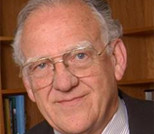Political Dissent: Exit or Voice?
The businesses that serve us, schools that educate our children, and county, state, and federal governments that provide us with necessary support get better when we—customers and citizens—make our desires known. They prosper by making us happy. When we fail to communicate what actually makes us happy, we can hardly expect those who serve us to get better at what they do.
Let’s look closer at how this works. If you become dissatisfied with the quality of fresh vegetables sold at your regular supermarket, you can either complain to the manager and hope for a better tomorrow or simply start buying your vegetables at another store. Either way, the store management gets the message. Most people, it seems, choose the exit option rather than voicing their concerns. Assuming another store with comparable prices is nearby, exit is easier and it’s inexpensive.
Of course, hardly anyone complains to management when shopping on the web. Yet in those cases, management frequently comes to us to enquire about our shopping experience. They have to. They know that exit and another seller are just a mouse click away.
Moving to a different arena, if you become unhappy with the experience your third grader is having at the local public school, you can either complain to the principal or school superintendent—exercise your voice—or place your child in another public or private school. Faced with this situation, most people, it seems, exercise voice rather than exit. Exit costs are high and transfers are complicated. Changing public schools may even require moving to another district or county, and private school tuition can take a large bite from the family budget.
And now to a much larger stage. If you are distressed about the leadership of your country and feel that serious policy mistakes are being made, you can write letters, call your representatives, join protests, or even run for office yourself. The exit alternative, in this case, is more extreme: You can give up your citizenship and exit the country. Putting aside the occasional bluster from political dissenters about moving to Canada or Europe, nearly everyone in the United States prefers voice over exit.
Citizenship change is extraordinarily complicated and costly. Doing so can require learning a new language, changing religious practices, and losing contact with a defining culture. But of course, when things become truly desperate, people do pack up and leave. Witness Venezuela, Syria, El Salvador, and the U.S.-Mexico border.
When people raise their voices about things that displease them and vote with their feet, businesses, schools, and political units—even countries—tend to listen. Many learn and become more effective. But when dissent is discouraged or not tolerated at all and exit is costly, ordinary people have little choice but to accept their circumstances. Those who push back can be abused or, in extreme cases, placed in prison.
Democracies that prosper encourage or at least tolerate dissent and count on the “loyal opposition” to discipline the party in power. Competition matters.
In his provocative 1970 book, “Exit, Voice, and Loyalty,” economist Albert O. Hirschman explored these ideas. Explaining how exercise of exit and voice can bring improvements to an imperfect world, he made this astute point:
“Each society learns to live with a certain amount of dysfunctional or misbehavior; but lest the misbehavior feed on itself and lead to general decay, society must be able to marshal from within itself forces which will make as many of the faltering actors as possible revert to the behavior required for proper functioning.”
In recent days, newly elected congresswomen raised the ire of our president, who, like most people, does not enjoy criticism. Responding to their persistent negative commentary about his leadership and the nation, he implied they were not really Americans and suggested that it might be better if they moved to another country. Mr. Trump seems to prefer exit to voice when it comes to people who dislike his policies and are critical of the country.
In grocery stores, schools, and democracies, our voices need to be raised and heard, even when the message goes against the grain. That is how free people prosper.











